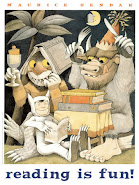
This is a well written and interesting novel, written in the first person. Unfortunately the protagonist has a very unattractive way of viewing the world and other people, so it is not always a fun experience to read. There were a few disliked-by-the-protagonist characters I felt were probably quite attractive people in real life. Apparently there are thinly disguised real people in this novel, which is not autobiographical but has a lot of elements from the author's life. Growing up middle class and male in Britain in the forties and fifties seems to have been an endurance test with not many moments of joy.
The increasing maturity and understanding of the protagonist is well done. He is twelve at the start, and as he gets older we get an increasingly nuanced view of his relatives. Interestingly, the objections made in the novel to a fictional biography of a fictional character mirror some of the objections made to Wilson's own biography of C.S. Lewis, published 2 years later.
Incline our Hearts first published 1988















